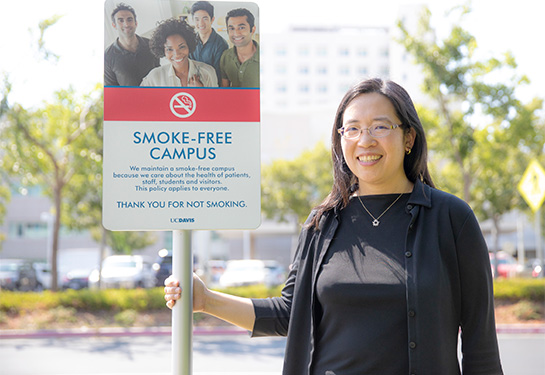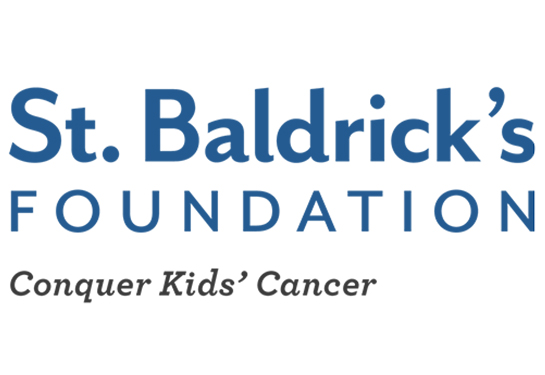Elisa Tong to help lead health equity-focused population science research
Elisa Tong has been named assistant director for population sciences for UC Davis Comprehensive Cancer Center. The UC Davis Health internist and renowned cancer center tobacco researcher will focus on health equity to improve cancer prevention, screening, treatment and survivorship.
The use of commercial tobacco is linked to a dozen types of cancer and is a leading cause of death. Vulnerable and disadvantaged populations use tobacco at higher rates, experience greater secondhand smoke exposure, are disproportionately targeted by the tobacco industry, and often have higher rates of tobacco-related disease.
“We look forward to leveraging Dr. Tong’s extensive background in tobacco research and her public health policy work. Her focus will include strengthening strategic partnerships across UC Davis while advancing our population-based cancer research priorities,” UC Davis Comprehensive Cancer Center Director Primo “Lucky” Lara Jr. said.
Tong will join Shehnaz Hussain, the associate director for population sciences. She will also work with the cancer center director, its senior leadership, and program leaders to facilitate and disseminate impactful research on cancer determinants and outcomes.
“Dr. Tong is an important addition to the cancer center leadership and will provide key perspectives in cancer prevention and health services research through the lens of health equity to help guide our expanding portfolio of population science research,” Hussain said.
Tong is the director and principal investigator of the Tobacco Cessation Policy Research Center, a community-academic research and training partnership. She also supports the California Tobacco Prevention Program. She has also collaborated with the California Cancer Registry to demonstrate nearly half of the deaths from 12 cancers are due to tobacco and that nearly 70,000 Californians recently diagnosed with cancer continue to have high tobacco use rates.
She has been medical director of the cancer center's SToP: Stop Tobacco Program and serves as a co-chair for the UC Lung Cancer Consortium population health and policy subcommittee. Previously, Tong led UC Quits for the five UC health systems, which led to over 20,000 tobacco referrals to the free state quitline. She also founded and leads CA Quits, which advances tobacco treatment delivery with statewide health systems and health plans serving California’s Medi-Cal population. She recently teamed up with L.A. Care Health Plan and the state quitline to develop and test population-based outreach strategies for health equity.
Nationally, Tong serves on the National Cancer Institute Cancer Center Cessation Initiative diversity equity inclusion workgroup, the American College of Surgeons' Commission on Cancer task force for tobacco quality improvement, and the National Comprehensive Cancer Network smoking cessation guidelines workgroup. She also serves on the National Committee for Quality Assurance technical expert panel for tobacco and lung cancer screening quality metrics.
UC Davis Comprehensive Cancer Center
UC Davis Comprehensive Cancer Center is the only National Cancer Institute-designated center serving the Central Valley and inland Northern California, a region of more than 6 million people. Its specialists provide compassionate, comprehensive care for more than 100,000 adults and children every year and access to more than 200 active clinical trials at any given time. Its innovative research program engages more than 240 scientists at UC Davis who work collaboratively to advance discovery of new tools to diagnose and treat cancer. Patients have access to leading-edge care, including immunotherapy and other targeted treatments. Its Office of Community Outreach and Engagement addresses disparities in cancer outcomes across diverse populations, and the cancer center provides comprehensive education and workforce development programs for the next generation of clinicians and scientists. For more information, visit cancer.ucdavis.edu.




